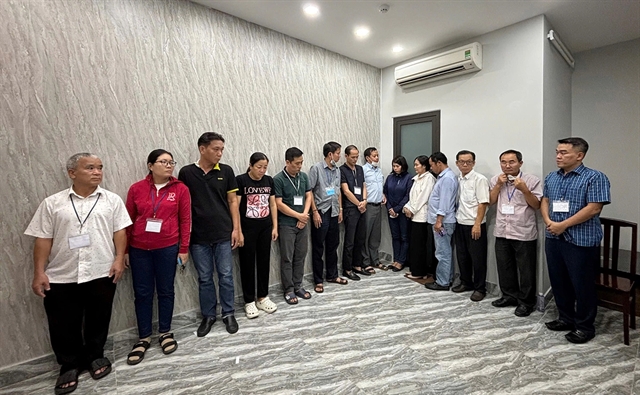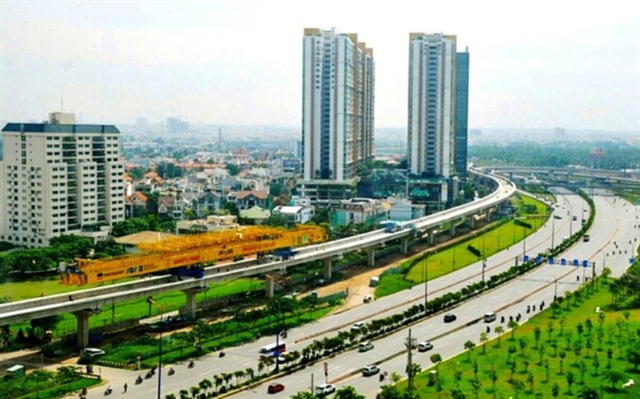 Society
Society

HCM City authorities have identified urban infrastructure development as the key factor in meeting the city’s economic targets in 2020-25.

|
| HCM City’s metro line No 1 being built between Bến Thành Market in District 1 and Suối Tiên Tourist Park in District 9. — VNS Photo Văn Châu |
HCM CITY — HCM City authorities have identified urban infrastructure development as the key factor in meeting the city’s economic targets in 2020-25.
The city has set 24 targets for the next five years including average annual economic growth of 8.5 per cent.
It also strives to be among the top five localities in the country on the provincial governance and public administration performance index (PAPI), provincial competitiveness index (PCI) and public administrative reform (PAR) index.
Trần Hoàng Ngân, director of the HCM City Development Research Institute, said the biggest "bottleneck" that constrains the growth of the city is inadequate infrastructure, so a breakthrough infrastructure programme is required.
At a recent workshop held by the HCM City Development Research Institute on investment in new residential areas, experts said insufficient infrastructure due to rapid urban development had caused construction delays and other problems.
Project planning expert Phạm Trần Hải said problems associated with the development of new residential areas were mainly caused by the lack of harmony between various components in urban development plans, lack of clearly defined roles for involved parties and poor construction planning management.
To meet the targets, the city should effectively mobilise all resources to properly develop urban infrastructure, he added.
Ngân said the solution is to promote the renovation of dormitories and at the same time attract investment in building new urban areas such as Thủ Thiêm, South, Northwestern, Bình Quới-Thanh Đa, and Cần Giờ.
To reduce congestion and traffic accidents, the city needs to optimise mobilisation of resources, solicit investment in key transport works, efficiently exploit waterways, build rail routes to the west, build belt roads, and reduce the use of private vehicles, he said.
Architect and urban planning expert Ngô Viết Nam Sơn said regional connectivity in infrastructure would help reduce traffic congestion, ensure traffic safety, enable people to move to the suburbs to alleviate stresses on the inner urban areas, and foster economic development in other provinces and cities as they link up with HCM City. — VNS